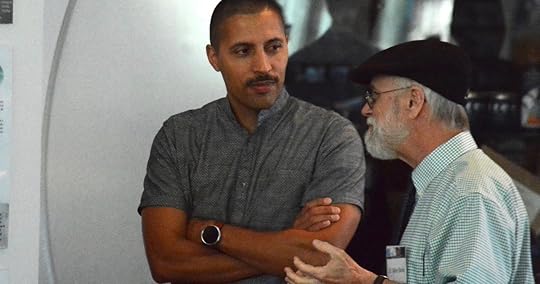Talking to a computer? Marks and Montañez offer tips on how to tell
 George Montañez with Michael Behe at the Walter Bradley Center launch in July 2018
George Montañez with Michael Behe at the Walter Bradley Center launch in July 2018Robert J. Marks (from the Evolutionary Informatics Lab) and George Montañez (ID is like the Turing test) offer some thoughts on how you can really know if you are talking to a computer:
First, claims that a given program has “passed the Turing test” should be treated skeptically because a program can be optimized to pass the Turing test without demonstrating any particular intelligence at all.
Robert J. Marks: It’s always easy to determine if you are talking to a computer or a human. You can just ask them to compute the square root of 30 or something because a human would take a while to get the square root of thirty …
Hint: Humans, even very gifted ones, must think in order to do difficult calculations. A machine dedicated to calculations does not think; it produces a correct answer to any calculation very quickly— provided that the mechanism enables it.
“How you can really know you are talking to a computer” at Mind Matters News
Otherwise, it would produce nothing. There’s a place to start. But it gets better.
See also: Computer guy/philosopher: AI can’t do abductive reasoning,
Copyright © 2019 Uncommon Descent . This Feed is for personal non-commercial use only. If you are not reading this material in your news aggregator, the site you are looking at is guilty of copyright infringement UNLESS EXPLICIT PERMISSION OTHERWISE HAS BEEN GIVEN. Please contact legal@uncommondescent.com so we can take legal action immediately.
Plugin by Taragana
Michael J. Behe's Blog
- Michael J. Behe's profile
- 219 followers



